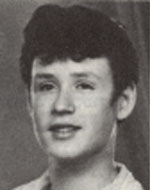Yered, Yehuda-Shaul
Yehuda-Shaul, son of Hedva and Yaakov, was born on the first day of Rosh Hashana in Tel Aviv. Yehuda was drafted into the Israel Defense Forces in the month of Adar I, 5733, and was assigned to the Armored Corps, where he was sent to serve in the armored infantry unit of the Armored Corps in the Sinai. Wrote about him: “His devotion to God illuminated the way of all of us, and we did not derive encouragement from it.” In his unit Yehuda was the character from which his comrades were required to take an example. He was a good friend and helpful to others in difficult moments, found a common language with everyone and shared everything with him, and at any time was careful to maintain a way of life according to which he was educated and the times of prayers, When the war broke out on Yom Kippur, Yehuda and his friends were called from the synagogue in the midst of the prayer service, and he was even angry at it – but he boarded the armored personnel carrier who went to battle. On the Day of Atonement on October 6, 1973, the unit of the armored infantry unit was sent to serve as a reinforcement to the “Ketubah” stronghold in the area of Qantara, in the northern sector of the Suez Canal. Yehuda fought as a machine gunner in the company’s deputy company commander, who tried to break through and encountered an ambush by Egyptian commandos who hit the armored personnel carrier and Yehuda was hit and killed. He was brought to eternal rest in the military section of the cemetery on the Mount of Olives. His commander wrote that “Yehuda fought fiercely and returned fire to the attackers, while showing courage.” After his fall, he was promoted to corporal. Survived by his parents and brothers. In a letter of condolence to the bereaved family, his commanding officer wrote: “Fear of God was a supreme value in Judah-Shaul, but not as a hurdle to dig in.” His Jewishness was carried on his shoulder in a house like a kabbala and not necessarily in the four cubits of the synagogue. , Who is very few in any case, to observe the mitzvot as they were, in a time and place that did not bother anyone, he was a man outside, but not a man like all other nations. His parents published a book in his memory, describing his image. The former chief rabbi, Rabbi Isser-Yehuda Unterman zt “l, wrote:” Let the Lev hear that a young son of great importance in Ma’alot, who was raised in the Torah and Judaism of size, fell in the war, Israel and His Savior. “The book also contains words written by Yehuda-Shaul, in which we find an essay on the commandment to honor a father and motherNow I understand that the mitzvah of honoring one’s father and mother is a very great mitzvah, because of the fact that I heard in Avi’s voice and did not object to it – not a single drop of rain fell, and our sukkah stands on its pedestal. ” There are also thoughts about “the negation of the great splitting of lists in the Knesset elections,” the “conclusion that territories can not be returned, because in the psyche of the people is”, “the greater happiness expected of man because of the blessing inherent in the development of science”; His parents and friends established in his memory a scholarship fund for Torah education – a fund that bears his name.
